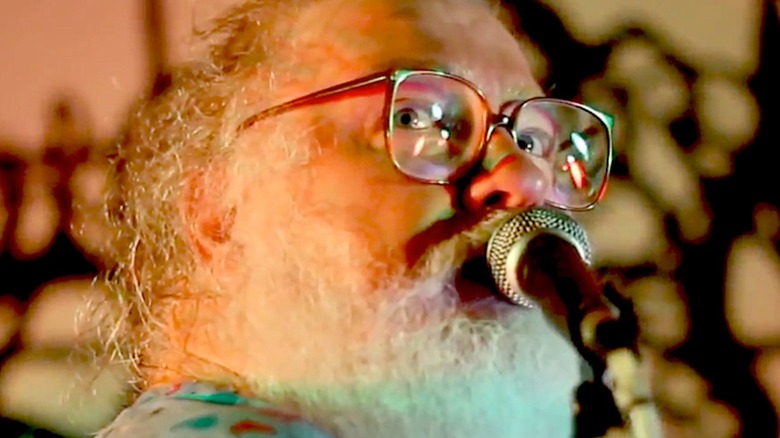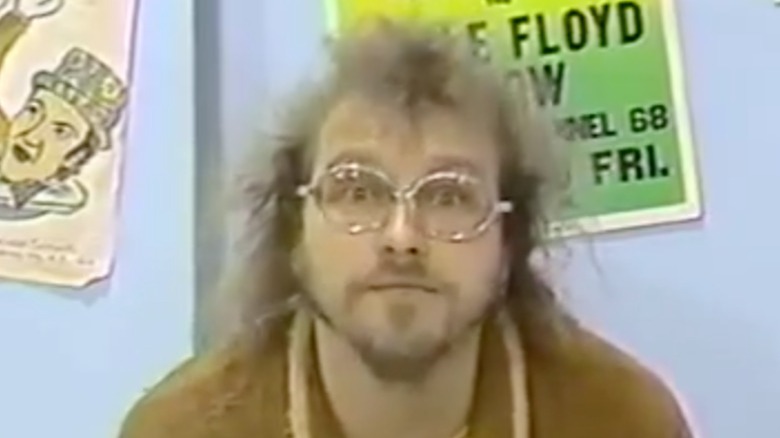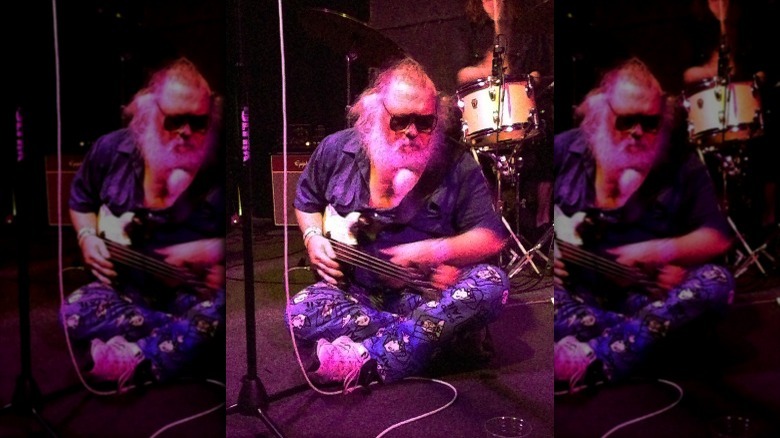The Truth About The Musician Who's Released Around 400 Albums
Alternative musician R. Stevie Moore has never exactly had legions of fans. He was born in Nashville, Tennessee on January 18, 1952, formed his first band, the Marlborough, aged 15, and started recording at home with a 4-track recorder he got for his 16th birthday, according to All Music. "I had one fan, and that was my uncle," Moore stated in a recent interview with Erin Eats (posted on YouTube). Today, things are a little different. Not much, but a little.
In the years since he first started recording the strange sounds he would come up with in his bedroom and distributing his creations through any channel he could — be it through handing out tapes, delivering them via mailing lists, or, occasionally, through traditional record labels — R. Stevie Moore has built a fanbase that includes some of the most prominent names in alternative music. A recent documentary, "Cool Daddio: The Second Youth of R. Stevie Moore," features plaudits from MGMT, Ariel Pink, and Mac DeMarco, while the self-consciously DIY aesthetic of his music has seen him described in 2012 as the "great-grandfather of lofi" by Wire magazine (posted at moorestevie.com).
But along with the influential style of his music, which demonstrates songwriting in the style of The Beach Boys' Brian Wilson, as well as the tape-manipulation techniques of the avant-garde, what Moore is really known for is the method of his production and his prolific output.
The truth about R. Stevie Moore's incredible productivity
Over the course of more than half a century, he is believed to have recorded and released in the region of 400 individual albums, according to Discogs. But how?
One of R. Stevie Moore's most popular songs, "I Like To Stay Home," gives a somewhat blatant hint as to how the musician managed to accumulate such a wealth of recorded material in the early part of his career. As described in a 2019 profile by Huck magazine, Moore was essentially a "hermit," who eschewed live performance, collaboration, and the wider world to instead commit himself to extensive home recording experiments that employed a wide range of instruments and obscure recording devices, all operated, generally, by Moore himself. And while Moore did indeed release albums through traditional means — most notably 1986's "Glad Music," one of four albums released by Moore through the Parisian New Rose Records — as All Music notes, such albums tended to be compilations of material that had already been released privately, via 'The R. Stevie Moore Cassette Club,' through which Moore could circulate his latest tracks on tape and CD-R.
"My whole schtick is that I have released everything I have ever done. There is no good or bad — home demos are as fun as box sets of studio recordings," Moore told Huck. It's an attitude towards music which, when married with Moore's undoubted talent and wide range of musical interests, made him one of the most prolific songwriters of all time.
The 'second youth' of R. Stevie Moore
But despite umpteen releases and scores of influential fans who have gone on to spread the word of the DIY innovator R. Stevie Moore, true widespread acclaim eluded Moore for much of his career — that is, at least, until the 21st century, when finally the lifelong stay-at-home hermit finally decided to embrace live performance, and toured America and Europe extensively. It was at one of these concerts that Moore met Monika Baran and Imogen Putler, two budding filmmakers whose 2019 documentary "Cool Daddio: The Second Youth of R. Stevie Moore" charts Moore's late rising fame as a live act while facing the difficulties of ill health, and asks: "is it all too much and too late?"
Moore seemingly answered this question himself at the end of 2019, when, as reported in Brooklyn Vegan, he announced his imminent retirement from music. A statement on his official website read:
R STEVIE MOORE ANNOUNCES:
ON TUESDAY 12/31/2019, THE END IS HERE. ABSOLUTELY NO FURTHER SONG WRITING, RECORDING, PERFORMING, TRAVELLING, INTERVIEWS. 50 YEAR SHELF DATE. IT ALL SCREECHES TO A STOP JUST IN TIME FOR GROUND ZERO 2020. THERE WILL BE NO THIRD YOUTH. HAS BECOME UNBURDENED. STRICTLY A LEGACY ACT.
His final album, "Fake News Trending," a collaboration with fellow indie icon Gary Wilson, came out the same year.


